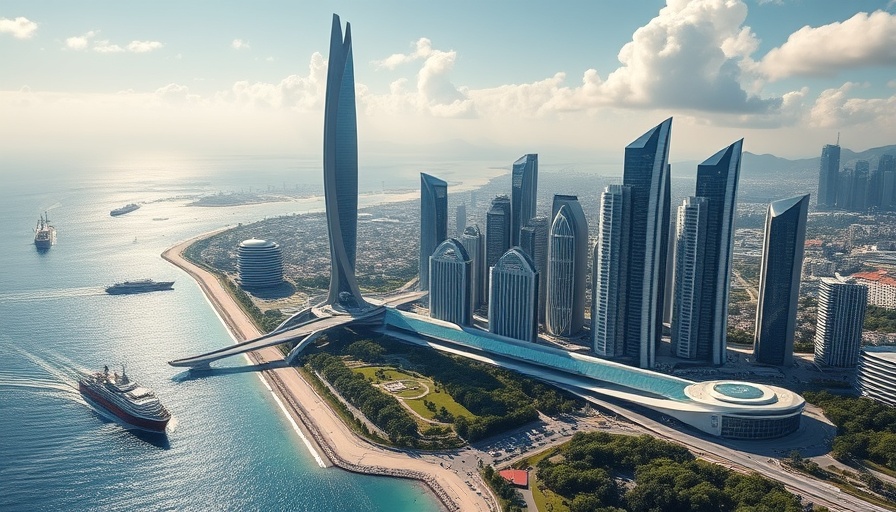
Tony Blair’s Gaza Project: An Insight into the ‘Gaza Riviera’ Initiative
The news of Tony Blair’s staff engaging in the ‘Gaza Riviera’ project in collaboration with Boston Consulting Group (BCG) has stirred up discussions around corporate partnerships and the implications of high-profile projects in conflict zones. The initiative was conceived as a means to revitalize Gaza’s economy, aiming to promote sustainable development amid the ongoing humanitarian crisis.
Understanding the Objectives of the ‘Gaza Riviera’ Project
The ‘Gaza Riviera’ project envisions establishing a tourist hub along the Gaza coastline, promoting not only leisure but also local entrepreneurship. This project indicates a shift in how international figures and corporations can play potential roles in rebuilding regions that suffer from adversity. By advocating for economic improvement, the initiative reflects greater corporate social responsibility in action.
The Intersection of Business and Humanitarian Efforts
This project prompts us to consider the broader implications of merging corporate interests with humanitarian efforts. Similar projects have been undertaken globally, where businesses step in to provide not just economic development but also uplift local communities. However, critics argue that such initiatives often overlook the complexities of the political climates in which they operate. They question whether short-term economic boosts can bring about sustainable long-term benefits and empowerment for local populations.
Comparative Analysis: Previous Initiatives in Crisis Regions
Historical comparisons can contribute valuable perspectives. For example, the rebuilding efforts after the 2004 tsunami in Southeast Asia involved multiple international organizations and businesses collaborating with local governments to restore infrastructure. Many of these projects saw mixed results, with some communities thriving while others fell into deeper debt due to mismanagement. This draws attention to the importance of transparency, sustainability, and grassroots engagement when launching similar initiatives.
The Role of Venture Capital in Innovative Projects
Venture capital funding plays a crucial part in initiatives like the ‘Gaza Riviera’ project. The influence of Silicon Valley startups raises questions about the importance of economic growth strategies in historically conflict-ridden areas. Leveraging technology and innovation can create jobs and investment, benefiting local entrepreneurs struggling to establish sustainable businesses in challenging environments. Such economic activities not only nurture local economies but can also foster hope and inspire future entrepreneurs.
The Bay Area’s Economic Ties: A Local Perspective
For stakeholders in the Bay Area, the intersection of tech innovation and humanitarian efforts signals a shift in how business is conducted. The tech industry updates from Silicon Valley highlight an increasing awareness of corporate governance and the need for sustainable practices in business. As venture capitalists seek new opportunities, initiatives like the ‘Gaza Riviera’ could inspire local businesses to consider the broader implications of their operations and contributions to society.
Corporate Governance and Ethical Considerations
Furthermore, this project sheds light on the importance of corporate governance in these complex scenarios. The ability of companies to navigate ethical dilemmas while pursuing profit is crucial. Stakeholders are becoming more aware of the need for transparency and accountability in business practices, emphasizing corporate responsibility toward society and the environment. Businesses are encouraged to adopt sustainable business practices and integrate them into their operational models.
Future Implications and Opportunities for Business Leaders
The project’s ambition not only illustrates innovative approaches to corporate involvement in global crises but also opens discussions about the evolving role of business leaders in economic development and social progress. Leaders need to cultivate an understanding of local challenges while establishing partnerships that empower rather than exploit communities.
As we continue to scrutinize these corporate initiatives, it is vital for business leaders, investors, and workers to recognize the potential impact of their decisions. Engaging in projects that promote sustainable development, such as the ‘Gaza Riviera,’ could lead to a renaissance of businesses that advocate for a stronger, more equitable global economy. Therefore, stakeholders should approach such opportunities with caution and dedication, recognizing the profound responsibilities they bear in these endeavors.
In conclusion, the ‘Gaza Riviera’ project serves as a stark reminder of the intersection between business, humanitarian efforts, and economic revitalization in conflict zones. Future results will undoubtedly shape the narrative around corporate social responsibility and the evolving relationship between tech startups and socioeconomic recovery.
 Add Row
Add Row  Add
Add 



Write A Comment